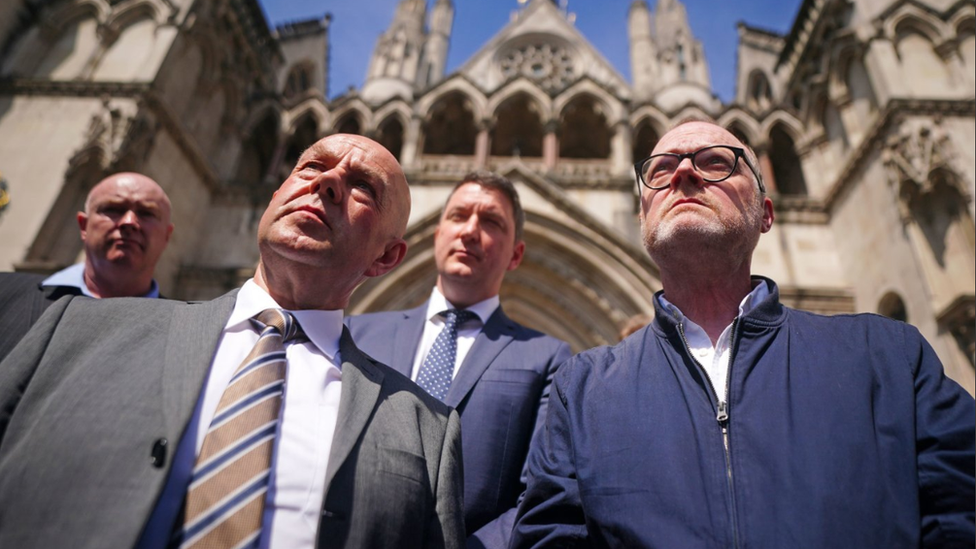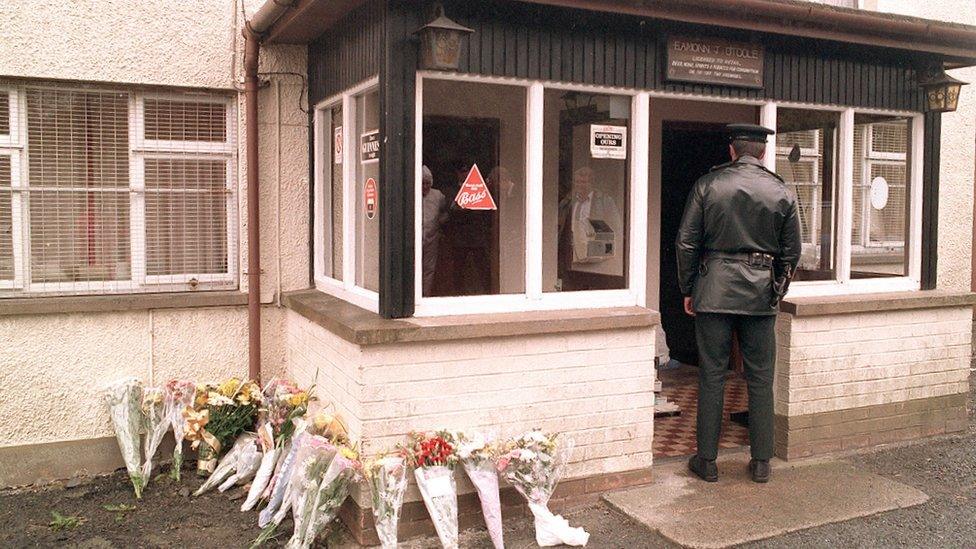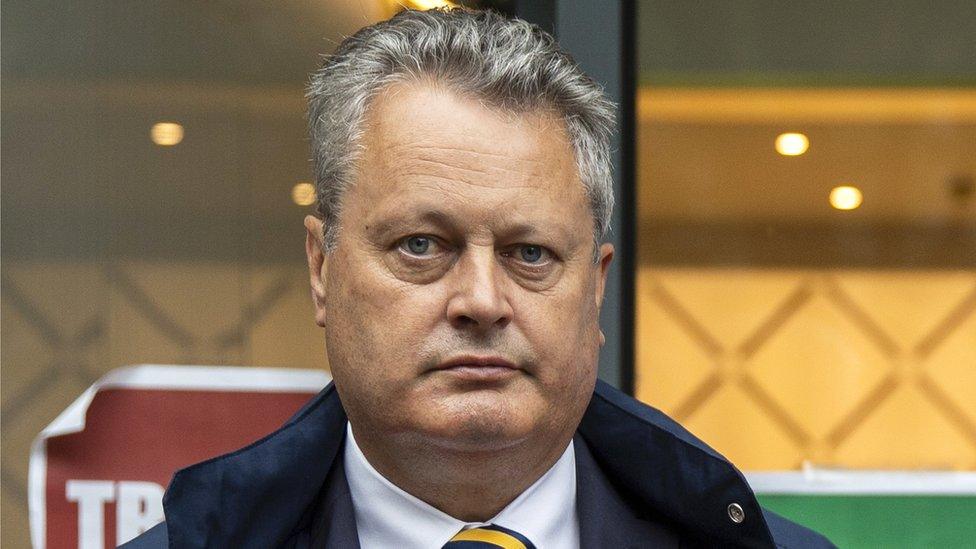'Troublemaker journalists' phone records accessed, court hears
- Published

Barry McCaffrey (left) and Trevor Birney (right) spoke outside the Royal Courts of Justice in London on Wednesday
A court in London has heard claims that the PSNI accessed the phone records of "troublemaker journalists" to try to uncover their sources.
The claim was made by Ben Jaffey KC.
He is a lawyer acting for two journalists from Northern Ireland who believe they were targeted by unlawful covert surveillance.
The Investigatory Powers Tribunal is examining allegations that the PSNI used unlawful covert surveillance in an attempt to unmask journalists' sources.
Evidence given to the tribunal in a witness statement from a former Durham police employee refers to a Police Service of Northern Ireland (PSNI) "defensive operation".
It involved "cross-referencing (telephone) billing with police telephone numbers on a six monthly basis" of Northern Irish journalists.
Mr Jaffey, who is acting for Trevor Birney and Barry McCaffrey, said this operation was apparently in place at the end of 2017 and seems to have been in place for some time.
It included all Northern Irish journalists who were perceived to conduct unwanted investigations into the PSNI every six months.
He said it appears that Barry McCaffrey was one such journalist affected by this so-called "defensive operation".
He argued that as well as being obviously unlawful, this rolling programme of authorisations has never been disclosed or explained in the PSNI evidence to the tribunal to date.
The Investigatory Powers Tribunal is examining allegations that Mr Birney and Mr McCaffrey were subject to unlawful covert surveillance.
'Come forward with the truth'
Speaking outside the Royal Courts of Justice in London on Wednesday afternoon, Trevor Birney said it was "quite clear what we heard this morning in court is that the PSNI are absolutely obsessive with journalists and their sources".
"I think we need to remind the PSNI and remind the authorities back in Belfast that journalism isn't a crime," he said.
"That journalists all over the world have sources and that is lawful and that is absolutely what journalists are there to do.
"But what we have heard this morning is incredibly worrying about the industrial harvesting of journalists' phone data and I think that is something that we really need to find out more about and we need to find out quickly.
"And the PSNI have a duty of candour to this court in order to explain properly, rather than being dragged to this court kicking and screaming which is what has been going on here for five years.
"The PSNI have to now finally come forward with the truth and tell this court exactly what it's doing with journalists and their phones and their communications data."
Barry McCaffrey said Wednesday was a "red line day" and the Policing Board "need to take control and authority of the PSNI and Naomi Long, the Justice Minister needs to do the same".
Mr McCaffrey complained to the tribunal in 2019.
He and Mr Birney had been arrested over the suspected theft of files from the Police Ombudsman's Office in 2018.

The attack in Loughinisland took place in June 1994 at the Heights Bar
They had been working on a documentary about the Loughinisland killings.
The film examined how the Royal Ulster Constabulary (RUC) handled the Ulster Volunteer Force (UVF) murders of six Catholic men at a pub in Loughinisland in 1994.
The PSNI later unreservedly apologised for how the men had been treated and agreed to pay £875,000 in damages to the journalists and the film company behind the documentary.
The settlement came after a court ruled that the warrants used by police to search the journalists' homes and Fine Point Films had been "inappropriate".
The journalists are arguing that there were repeated and unjustified attempts by the PSNI and Durham Police to identify their sources.
They say the extent of their conduct to unmask their confidential sources has been kept secret for many years.
Lawyers acting for the BBC have written to the Investigatory Powers Tribunal about the alleged police surveillance of one of its former journalists.
Vincent Kearney worked on Spotlight and presented a programme about the Police Ombudsman's Office in 2011.
The tribunal is an independent judicial body which considers complaints about public bodies using covert investigative techniques.
It is understood Mr Kearney's case emerged as part of ongoing proceedings involving Mr McCaffrey and Mr Birney.
Related topics
- Published2 May 2024
